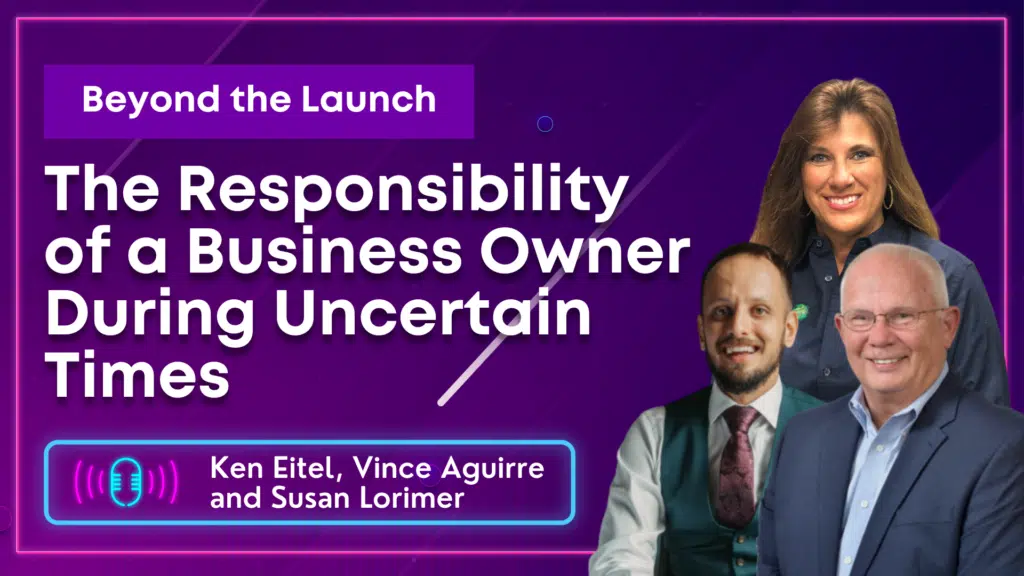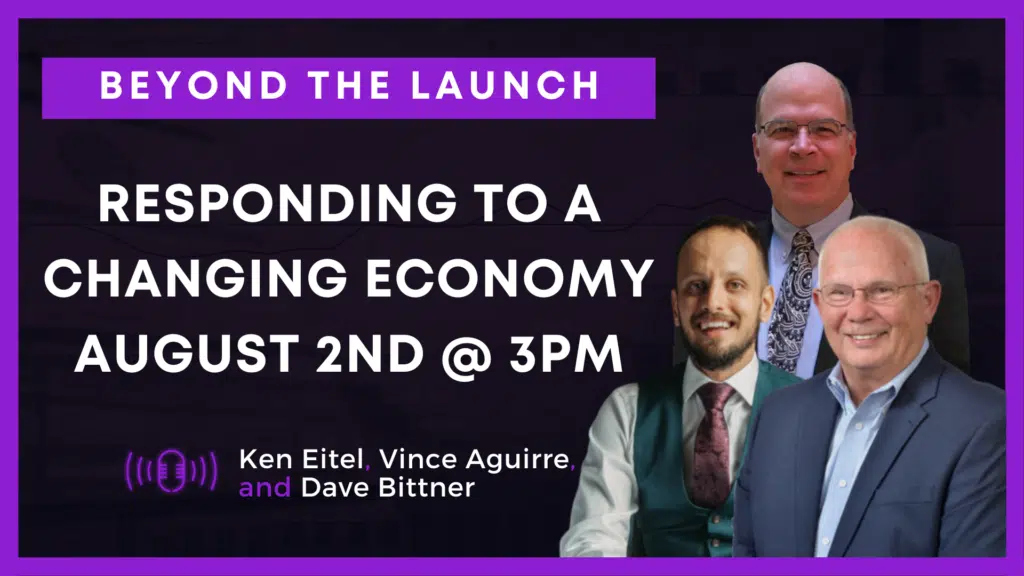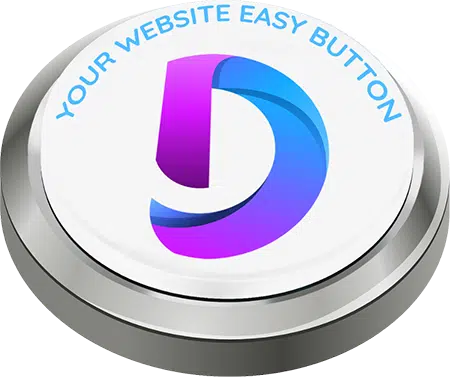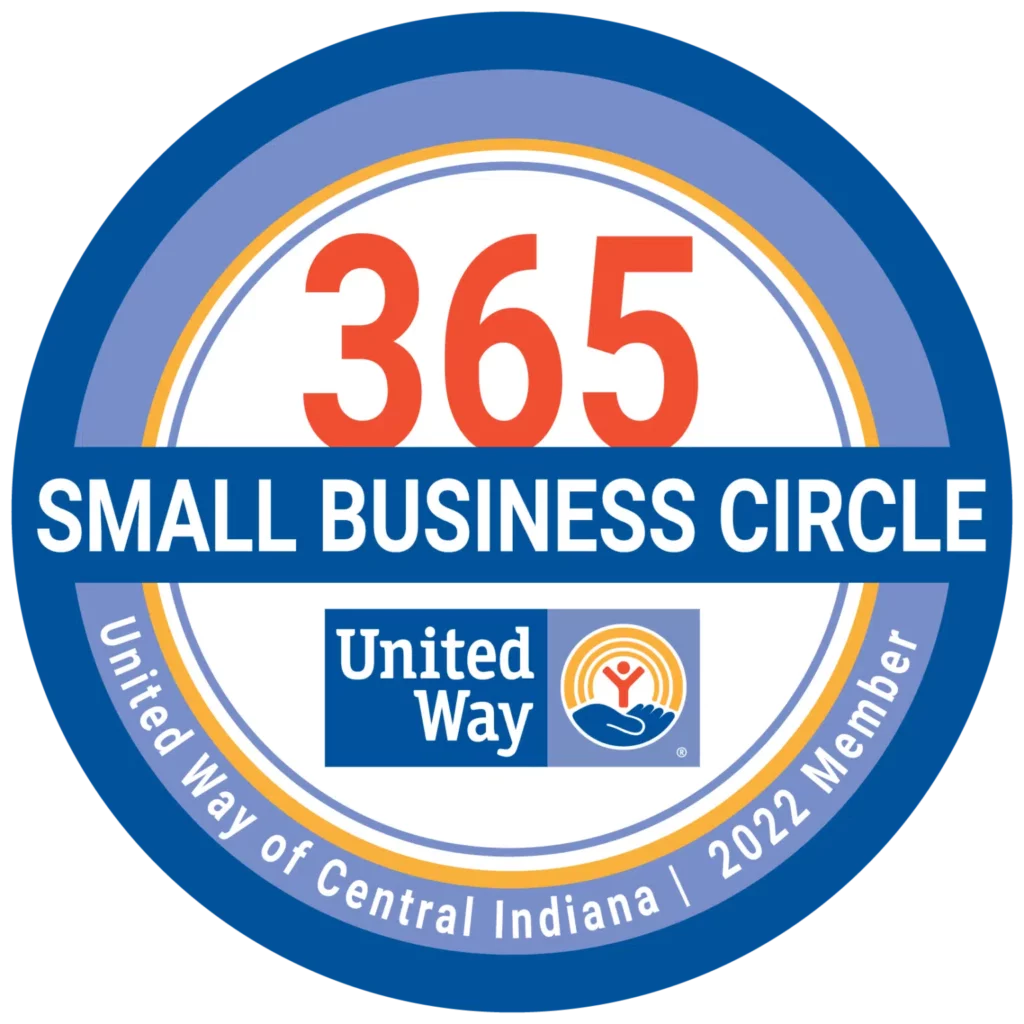Watch The On-Demand Video Or Read The Transcript Below
Leadership starts at the top; entrepreneurs and owners who lead by example, empower people, and create impact set the tone and culture of an enterprise.
Our guest, Coralyn Turentine, is the founder of Mental Health Matters and a proponent of Resilient Leadership for Corporate Professionals. Vince and Ken talk with her about leadership today and why it's important to manage yourself and how it benefits the leader and the business.
Listen To The Podcast
Check out our other Small Business Squad podcasts HERE!
Transcript
- 2:10 What Is Resilient Leadership
- 4:39 You Can Be Persistent And Not Have Resilience
- 8:28 How To Avoid Burnouts
- 13:12 How To Have Work-Life Balance
- 16:33 Businesses Benefit When Someone Is Practicing Work-Life Balance
- 18:18 Particular Careers That Offer Work-Life Balance
- 19:26 Find Experts To Help You In The Areas That You Don't Understand
- 21:27 You May Feel Lonely But You're Not Alone
Ken Eitel: So good afternoon! How are you?
CoraLyn Turentine: I'm doing well. How are you doing?
Ken: I'm doing just fine. It's good to be with you and talk with you again. I know since your association with Vince, that I've come to know you, I've become very interested in the things that you're doing around leadership, and leadership training, particularly in the area of the Resilient Leadership, which is what we're going to talk about here in a little bit. I know you are specifically targeted at corporate professionals. And those people who just seem to be always really busy, and how they can develop a certain quality of life. And you're working in the area of leadership training and public speaking, project development, but also some nonprofit consulting. So talk with me a little bit about how you became associated with Vince.
CoraLyn: Yeah, so Vince, and I actually went to the same undergrad, we both graduated from DePau University, different years, but we had the opportunity to connect through LinkedIn about a year ago, it's been about a year, about a year ago, and I was just reaching out to see, want to connect with other DePau leaders hear what they're doing, hear what they're about. And since I jumped on, jumped on that post that I made, so we've had the chance to get to know each other a little bit more and become familiar with one another's work. And I like to say that we've developed a nice little friendship.
Ken: Yeah, well, I've enjoyed being part of that, since I joined Vince about a month ago, and enjoyed, again, how some of these things relate to a lot of the things that I've done, particularly when I was adjunct faculty at a local community college. And so you know, one of the things that I've always asked is to define leadership. And I found that sometimes pretty difficult. But why don't you give us your definition of leadership in the sense of your direction, which is Resilient Leadership, and why it's important for us to understand that in today's discussion of leadership.
2:10 What Is Resilient Leadership
CoraLyn: So I actually exercise in organizational leadership. So we've got a lot of leadership theory that I get to pull off. And I start that by saying, if you were to ask me to define that asked me to define leadership, it's a tool. To me leadership is a tool that allows us to accomplish different goals depending on the context and on the setting. So we've heard of transformational leadership. We've heard of servant leadership, we've heard of, we know about dictatorships, we don't really care for those too much do we? But each of each of those leadership's it has its own style, has its own tools has its own audience and its own goals to be able to succeed in some particular area. I work specifically with Resilient Leadership. And so when we look at the definition of resilience; resilience is all about being able to navigate challenges, navigate adversity, and actually come up on the other side of adversity much stronger than we were before we started. So when we talk about Resilient Leadership, what we're saying is that resilient leaders are able to sustain their energy, when they're under pressure, they are able to cope with disruptive changes, and they are able to adapt to those changes. And then they're able to overcome difficulty without engaging in any kind of dysfunctional behavior or causing harm to other people fast, specifically resilient leadership. And that's what I function.
Ken: So a lot of the things you talked about, were what I call situational leadership. The ability to know how to approach things, and how to lead people. And I really like to use the word of being an inspiring influence. How can you inspire people and influence them to lead in a way that's responsive to people and to their needs? One of the words that always comes up and you mentioned servant leadership, and, of course, that I think was talked about a great deal for many years, and still is in a lot of circles. But the other the other term that I've heard and I kind of agree with is the importance of being persistent. And so it occurs to me as I thought about this to the for our discussion today, is I don't know how much being persistent as a trait is relational to Resilient Leadership. So is there a connection here between resilient leadership and being a persistent person as well?
4:39 You Can Be Persistent And Not Have Resilience
CoraLyn: So resilience and persistence are two different things. And I think you're exactly right, that persistence would be just one quality of a resilient leader. I like to operate with definition. So if you look at the definition of persistence, you know, essentially, it's all about being able to propel something forward, even though there are obstacles Coming your way you keep pushing at it, you keep pushing at it, you keep pushing at it. Somebody can be persistent and not have resilience. I can be someone that goes out there every single day, and continues to sell my mission continues to try to engage people continues to drive to make things happen, and do so in such a way that I burnout on my energy, I'm not giving time to my family, my I start getting sick, I'm not really taking care of my physical health and well being anymore. So I can be persistent. But that doesn't mean that I'm resilience. When we talk about being resilient, we talked about being able to be persistent in such a way that it's not compromising our overall well being or the well being of the people immediately around us that we're interacting with. So resilience, really would position someone to use persistence with to use it strategically, so that they're leveraging their resources in ways that are most beneficial and not in a way that is detrimental to them or the people around them.
Ken: I think that's a really interesting way to talk about those two, and how they just kind of dovetail together. You know, I know in the years that I've been in business, I was in retail for over 50 years, that I've experienced burnout, a period of time where I was head to stores was in six or seven nonprofit organizations, which I grew up to be part of was a part of my family's heritage. But there came a time where I had children in middle school in high school. And it was just time to do something different. It was was time to not be burned out. You know, this is I mean, it will be with us today. But one of the things I see about what he's doing right now by adding myself as an employee and a couple other new folks, is that realization that, I'm maybe trying to do more than I should. And so what steps do you pursue when you all of a sudden realize I'm worn out, and I don't have time to do the things that I need to do, nor that I want to do? Talk a little bit about what you counsel those corporate executives, or, frankly, it's probably maybe more prevalent in small business people in everything, but how do you counsel them?
CoraLyn: So a couple of things. And again, I'm gonna go back to definitions give us a language to think about it a little bit differently, reframe it. So when I talked about some of my work, we talked about trauma informed care, we talked about mental health. Another way that we might define or explain trauma informed care would be by calling it toxic stress, right, and that feels a little bit more relatable, all of us have been exposed to toxic stress, or we just, you know, it's overwhelming. And we often say is, when we've been exposed to toxic stress, we do experience burnout. But there's a real difference between burnout and being traumatized as a result of that toxic stress. So burnout is really about our cup being empty. Burnout is about, I need to get a little bit more sleep. Tonight, in order to be ready for the day tomorrow, burnout is about getting a cup of coffee and taking a breath in the middle of the day, it's those little – it's treatable with those little acts of self care. And that we find that, when we take a little break, or maybe we go on vacation, or we talk to a friend, or we do a hobby, afterwards, we feel re energized. And we're ready to dive back into the work that is very different from being exposed to toxic stress in a way that is deeply distressing and disturbing, and leads to trauma.
8:28 How To Avoid Burnouts
CoraLyn: And so what we'll find is, if we're experiencing what we think is burnout, if we feel tired, if we feel aggravated, if we feel worn out, if we find we're snapping people quite a bit, if we find that we're showing up to work, but we're not really being productive. If we find that we're chronically getting headaches, all the cups of coffee, and the, little breaks in the world won't treat those items. And that is because, again, it's going beyond our coping skills, and it's affecting our overall mental health. So what I encourage people to do is to really think about how we build up fences and lifestyle. So there are indicators of overall resilience and mental well being. And so we would go ahead and look at what those indicators are, whether it be things like, Do you have, at least two people in your life that you can lean on for support and that you're comfortable asking for help? Are you able to manage your finances in such a way that month to month you are not stressing about how you pay your bills? Do you feel good about yourself when you wake up in the morning? Do you go to work wearing clothes that make you feel good? Are you able to engage fully in your in your culture even while you're at work? And what I mean by that an example of that. There was a a doctor young woman who is who's Muslim, and so she needed to take time in the middle of the day in order to pray. And she was using her lunch hour for that and so because she was using her lunch hour she wasn't getting to eat and so part of thinking about resilience was how is she able to stay true to herself, right? Stay true to what's important to her. And what she believes is life sustaining, while also still being able to take a lunch break like everybody else, right? So it's all about tapping into that knowledge of what is it that I need in order to be over healthy each area of my life, and then build on those, build on those so that you're gradually eliminating all of your all of your risk factors. One of the ways that I do that for myself, I'm actually doing that today. And that people are beginning to leverage a bit more as I'm working from home, I don't want to go in the office, I hate traffic, it stresses me out, I don't feel like hearing the noise of other people around me, I don't feel like other people's personalities and moods affecting me today. And so, so I'm choosing to work from home. And actually, even though I have an office that I can go to daily, I've chosen to work from home. This is the seventh day that I've chosen to work from home, because I just want to be in a space where I have access to everything that makes me comfortable. On a broader picture for that part of why I'm able to do is because I made the decision to go to work for myself, I needed to have more control over my work schedule my day and my time so that I could be able to make those kinds of healthy choices. So with corporate professionals that's really tapping into, what are your assets? What are your leadership strengths? What do you have available to you, that allows you to have more autonomy in your life so that you can build a lifestyle that is healthy and supports you and your goals and then allows you to be more effective with what you do?
Ken: It seems to me that kind of discussion about work balance of being able to work from home, I'm home now, of course I like it's whatever retired means to me, that's what I am. But my wife works from home. And we have enjoyed the flexibility of that. I know she has. And it's a whole nother discussion about how the last two years have moved, what we're talking about forward in terms of the ability to work at home develop that life balance now, does she enjoy going to the office? Some? Yes, she does. But she has a choice. And I think that's what some of that is. So we hear a lot about work life balance. And I think it was driven some by the last two years. But in your work, it seems to me I wonder, you know, I've been around leaders, and I've been myself very driven. So what, what challenges do you encounter? As you enter these, I guess it would be it these type A executives, just don't get it that they grew up with, you work as much as you need to work as long as you need to work. And, frankly, in a sense, that drives the people that work for you to work that way, too. So tell me a little bit about how challenging that is? And what are the benefits to the corporation for that or the business when you do balance your life? And does that translate to the bottom line?
13:12 How To Have Work-Life Balance
CoraLyn: You know, part of the part of the challenge is that we have normalized a lot of what I would say are signs and symptoms of being mentally unwell. And we've made by normalizing them, we've made them a part of our everyday culture, and we celebrate these things that can actually work against us and make us sick. So, I think about how we, we love we love the Superwoman, right? We love the woman who's uh, she's able to take care of her kids, and she volunteers and she goes to work. And we think that she's so strong and so amazing. The person who shows up to work before everybody else, and then is the last person to clock out. Wow, they're so dedicated. They're so devoted, right, we celebrate some of these things, or they never take time off. They're always out here grinding, grinding grinding. And the reality is, is that that takes away from our protective factors, we need time to rest. We need time to ourselves, we need time to be able to, cut off our workout and focus on other things. But we what we do tend to celebrate some of these more toxic lifestyle choices. So it can be really really difficult for corporate professionals to feel like they can take a step back and focus a little bit more on themselves. And one of the biggest parts of that is just related to fear. Because since we celebrate productivity and and workaholism, so much perfectionism, being able to nail all those details. What can happen a lot of times is that we're afraid to actually behave differently. So maybe you would like to just clock in at nine and clock out at four but you're afraid that if you do that you'll be seen as lazy or you'll be seen as less motivated, less invested in the mission, right? Even though you're sick. You're showing up to work sick anyway because you don't want people to think you don't care about your job, or you're worried that what will my clients do if I don't show up today? They'll it'll throw things into a loop and they'll never be able to get on with if we're behind the day, right, we have all these fears around how others will perceive us whether or not we will still be seen as valuable and have the opportunity to continue tributing. And that fear becomes the roadblock to us being able to take better care of really be able to take care of ourselves. And and what it also does is not only are we glorifying, and sort of putting up on a pedestal, some toxic behaviors, but we're also vilifying all of our protective factors, right. So staying home when you're sick, and maybe this is beginning to change because of the pandemic, but staying home when you're sick, taking time off going on vacation with your family, right? Like these are things that help protect our mental wellness, and our overall well being, being able to set a schedule for yourself based around when you're most productive, right? These are all things that can help promote our well being but a lot of times, we can't get to them, because we're we're sort of still in this culture of work, work, work, work, work, and everything valuable is working, right.
Ken: So I guess, part of the last part of that question is for me, and we've got a good question here. We'll answer it just a minute. How does the corporation, how does the business benefit when someone is practicing work life? From the top? When they're leaving themselves in a way? How does that how does that benefit the corporation and to be a business guy? Does it benefit the bottom line? I guess it's just to be straight about it.
16:33 Businesses Benefit When Someone Is Practicing Work-Life Balance
CoraLyn: Yeah, it does, one of the biggest areas that we see is specifically in absenteeism and in what's called presenteeism. So just really quick for anyone that doesn't know presenteeism is essentially when you show up to work, but you're in no frame of mind to actually get anything done and you're typing, you're talking, but you're not really making a big difference, you might as well be home, right. And that's one of the biggest areas that corporations are seeing improvement, when we focus on our overall mental well being and on our resilience, they're finding that there is less turnover, that there is higher morale, you have more motivated and energized employees who believe that they can really make a difference. And so they're putting forth their best effort and producing higher quality of work. But also because they are present. And because they are being more productive, they're obviously able to do better at achieving some of those corporate goals. So you see that improvement in the bottom line, whereas, you know, certainly pre pandemic, and probably still today, we're sort of burning people out beyond their capacity. And so they're not able to put forth their best work, they are thinking about, leaving their jobs so that you have that high turnover. They're not showing up and being able to properly communicate effectively with teams. And so that's leading to issues and troubles within the work office and within the structure. So, yeah, it really does lead to just being able to better accomplish what it is that you set out to accomplish, because you are strategically maneuvering all of your resources, and your strengths and assets in a way that work towards not only the health and the well being of the organization, but the health and the well being of the people who drive the organization.
Ken: So I think the question is what careers are there that tend to offer more flexibility and work life balance? Do you know you see any particular careers that tend to offer that flexibility?
18:18 Particular Careers That Offer Work-Life Balance
CoraLyn: That's a great question. I think because of our culture, I think that's really difficult. And I don't know that there is a career that offers that. I think it really hones into the culture of the company and the organization and do they prioritize their people having work life balance, any industry that you go into, you'll be able to talk to people who feel overwhelmed and stressed out, so it's certainly not industry specific. For me, I have found that being my own boss better positions me to be able to have work life balance, I decide when I work, I decide when I get up, I decide my goals, I decide what success looks like for me. So you know, if I work for somebody else who says success is putting in 50 hours a week in grinding, grinding, grinding, and I don't have the capacity to do that, then I won't be successful. But if I'm able to kind of work for myself and have control over my time and say no success looks like I put in 20 hours a week and I connect with these number of people and I'm able to make this kind of a difference. I can set goals that are achievable for me and realistic and promote my well being so yeah, it really just depends.
19:26 Find Experts To Help You In The Areas That You Don't Understand
Ken: First discussion we had when we had that discovery discussion or whatever you talk about, we call that today. You talked about you're looking for an accountant. You were looking for an accountant because you realize that that was taking a lot of your time. So this is a trait that I have seen in my consulting work is that, it's probably more beneficial and more profitable if you will find experts to help you in those areas that you don't understand, so that you can free your time up not only to run your business, but to take and do the work life balance or you're talking about, and I can assure you that having someone do your accounting and having a professional in this case, is unquestionably beneficial to the business and beneficial to the person. In terms of relieving stress. It's just something that's terribly important. And to recognize that I do that. And sometimes those things are hard to recognize. It's hard for Pete Majewski experiences, it's hard for people to realize that that $100 a month or 300, or whatever it is, has exponential benefits to the business as well as to you.
Ken: So as we get ready to close talk with me, you always talk about and we hear at least ours or talk about, it's lonely at the top. You know, you're the court, you're their CEO, you're the owner of the business, you think like, do you feel you have to be the first one and the last one gone at night. And you just feel like, you're all alone. You get all the problems on your desk, all that? How do you get out of that? How can you deal with that, I guess it's cultural. But those things that maybe you grew up with, and you saw in your own family? How can you not be lonely at the top?
21:27 You May Feel Lonely But You're Not Alone
CoraLyn: Well, I think it's really important for people to know that even though they feel lonely, they are not alone. You know, if I throw just a couple of stats at you, 83% of workers are suffering from work related stress, it's 80 thing, that's a lot of people, right? We know that about half of workers in the US are going to struggle with their mental health at some time. So I think it's important for leaders to recognize that while they may feel very isolated and feel like they are going through the struggles of burnout, of working through employee challenges of navigating the pandemic, that you're not alone, it may feel lonely, but you're not alone, it's actually quite common. And when you're having those symptoms of depression, of feeling overwhelmed, feeling burned out, or feeling like you don't have enough feeling like no matter what you do, it just doesn't seem to be driving the results that you want, that those feelings are very, very typical and normal responses for what you are experiencing on a day to day basis. And the good thing about that is that if these are typical and normal responses, then we can also think about ways to begin to protect and transform those as well. So there are things that we can actually solve. And the best way for me to solve those issues, again, is to sort of take a step back and to look at what are some of those biggest stressors? What are some of the protective factors? When I say protective factors, I'm talking about the things that strengthen you that give you more resilience, what are some of the protective factors that you may be lacking in your space that you can add, add back into your work so that you are no longer struggling with some of those day to day stressors? For me accounting was one of them, I can spend X number of hours per week feeling like the worst business person in the world because I can't add two plus two. Or I can reach out to someone who is phenomenal in that realm and have them work on that piece. And not only does that free up my time to focus on the things that I am really good at. But it also means that I'm having better business excellence because I have somebody who's strong in that realm doing that. And in that way, by pooling in additional resources and building out your capacity to be able to do the work that you do, you find that your overall mental health really is improving and you're not struggling with those feelings of loneliness or isolation or falling short anymore.
Ken: So CoraLyn is a member of the Small Business Squad, I think Vince just posted a link where you can join the Small Business Squad if you want to on Facebook. CJ is information is in the podcast information I believe. But she can easily be reached on LinkedIn which for I've seen her the most. And some of her posts have been quite insightful. And I've thoroughly enjoyed them. As we close here. Do you have anything else you'd like to say about this subject? Or in this case, I think some of the services that Vince is offering through these podcasts?
CoraLyn: Yeah, I think the biggest thing is in terms of the Small Business Squad. What I love about the most is that for business professionals specially for business owners, is really focusing on building knowledge building capacity building support, a lot of the different networking groups that I have been a part of is are really not about networking. They're about marketing. And the really sad thing is I wrote about this early sales driven and so you don't really have the opportunity to make meaningful connections with people and build relationships. I like to say that our goal every day really should be about building relationships, that if we go through the whole day, and we complete tasks, and we haven't built a relationship, then we failed. But if we have built a relationship with someone by the end of the day, and we haven't quite completed the task, we still made progress. So I've appreciated the opportunity in that Small Business Squad to be able to build more meaningful relationships go deeper and get connected, and then find out how as a community were able to come together to solve one another's problems and fill in one another's gaps. So I would say for corporate professionals and business professionals that are out there, look at those opportunities, like the Small Business Squad to be able to actually focus in on build a building a relationship, as opposed to just checking off a bunch of tasks that need to be completed, or focusing in on things like sales and numbers.
Ken: So how would people contact you if they were interested in learning more about Resilient Leadership?
CoraLyn: Yeah, best way to contact me is through LinkedIn. My full name, I've got it there on the screen there, Portland, CJ Toronto, and you can search for me there and find me there. I'm also accessible on Instagram and on Facebook. If you type in @CJ_Turentine, you can reach me there. And then of course, you can go to our website ResilientLeadership.co, not com., dot co. And you will find our contact information there as well.
Ken: Well, it's just been a pleasure. And I look forward to continuing our discussions and reading your posts and commenting on those. I couldn't agree more that in today's world relationships are where it's really all add in the end. And I'll just close with a statement that you made in one of your posts that I know you know I like and that is is sales are the fruit of relationships. And that's just a wonderful way to say that, you need to take care of your customers and they need to know who you are and you need to give them value. So, I appreciate your time and have a great rest of your week.
CoraLyn: Thank you. Thank you for having me!
Ken: You're so welcome. Glad to have you!
Other blogs you should visit:









